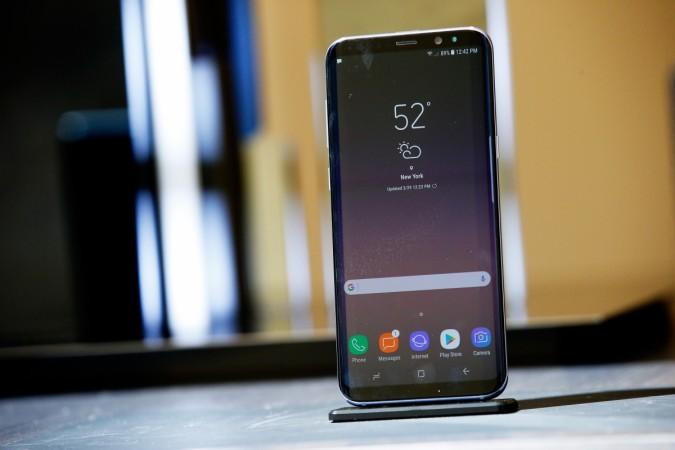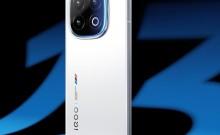
Putting an end to months of anticipation, the all-new Samsung Galaxy S8 finally made its first appearance at Lincoln Center in the New York City on Wednesday.
The latest flagship device from the South Korean conglomerate sports a spectacular design, which is inarguably the best among all the mainstream smartphones available in the market today.
What automatically grabs your eyeballs when you look at the handset is the super AMOLED-based Infinity display, which takes up more than 80 percent of the bezel-less edge-to-edge screen of both the 5.7-inch and 6.2-inch versions of the device. The curved edges also provide a classy look to the phone with noticeably reduced bezels and no physical buttons.
The Galaxy S8 also houses quite a few interesting features that would definitely make the device stand out in the crowd. Samsung has introduced Bixby -- its new AI-based voice assistant -- along with the phone to help people better interact with the Galaxy S8. According to the company, Bixby is intelligent enough to "learn users' habits and provide related information."
The Galaxy S7 successor also boasts a new feature called Samsung DeX, which allows users to use the Galaxy S8 as a mini computer. With DeX, people can easily access apps, browse the web and send messages directly from their phone on a larger display.
There is also a control centre pre-loaded on the Galaxy S8, which lets users manage and monitor the smart devices in their home.
To make sure that users have a seamless experience while performing all these tasks on their Galaxy S8, Samsung has incorporated Qualcomm's top-of-the-line Snapdragon 835 processor (for US, China and select developed markets) and its own Exynos 9985 series processor (for Europe, India and rest of the regions) to power the new phones.
There's no doubt that the Galaxy S8 is aesthetically stunning and its specifications make it look like the top-performing device of its kind. But software stability and hardware optimisation are two significant aspects that must be considered to evaluate the actual performance of a device that is new to the market.
What makes it even more crucial is today's smartphone market which is more crowded than ever. While Apple's iPhone 7 and iPhone 7 Plus are still going strong, Google decided to up the ante by launching the Pixel and Pixel XL, and LG recently unleashed the G6 to face the rivals on the battlefield.
Here's how the hardware specifications of Samsung's new Galaxy S8 and Galaxy S8 Plus stack up against some of the best phones available today.














